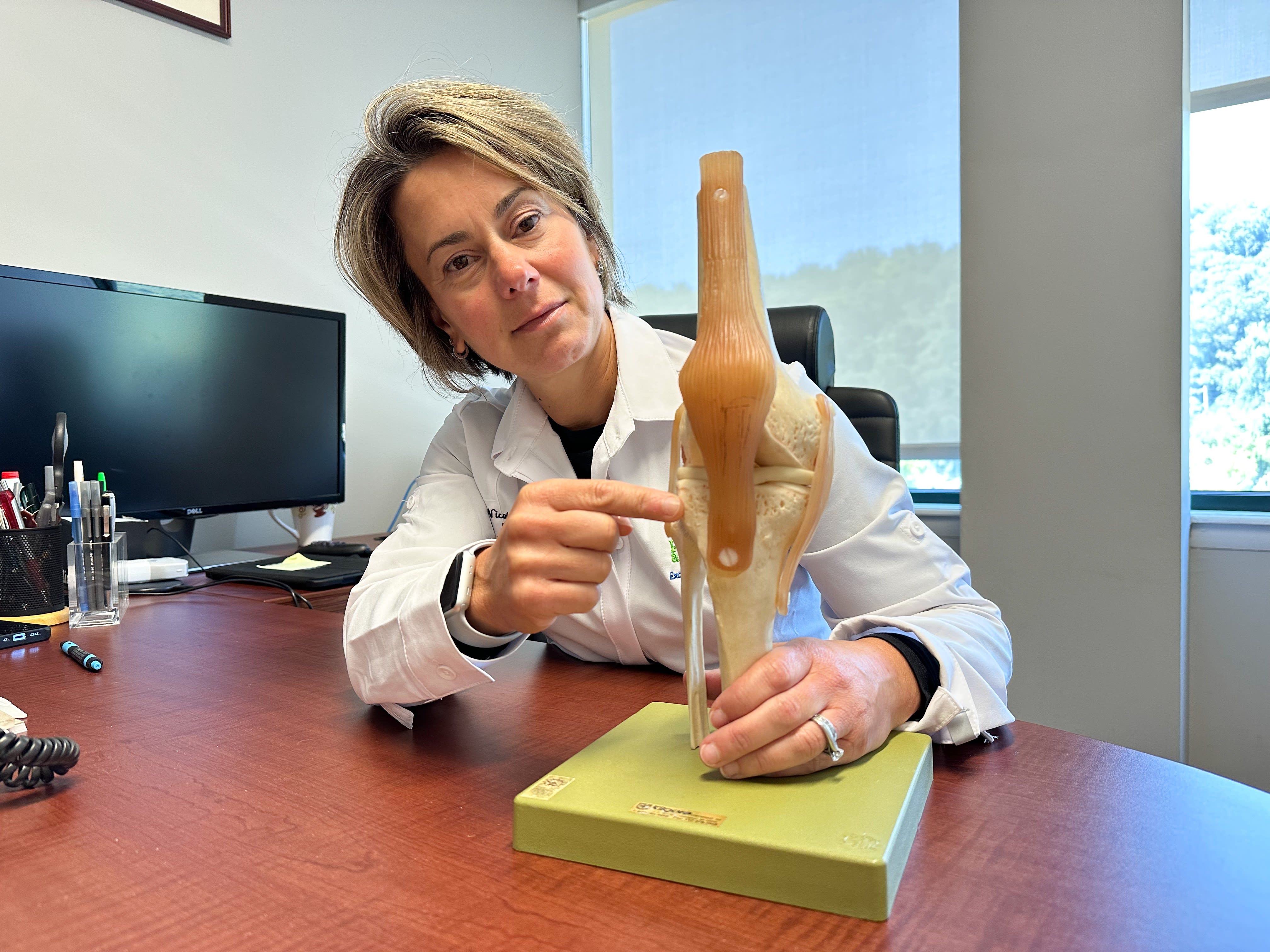What does knee pain have to do with your diet? Could tight hips be related to the TV binge-watching that pushes back your bedtime? The reality is, your joints and your lifestyle are more intermingled than you might think. In 2021, the Centers for Disease Control and Prevention reported that 20% of adults suffer chronic pain — often caused by injured muscles, tendons and ligaments around the joints. But instead of localized treatment, you may need a lifestyle reboot. Here’s how an emerging field of medicine may help.
“Lifestyle medicine is built upon six pillars of health: a plant-based, whole-food diet; physical activity; stress relief; avoidance of risky substances; social connections; and quality sleep,” says Dr. Nicole Solomos, Lifestyle and Sports Medicine Physician at White Plains Hospital Physician Associates in Somers and Hawthorne.

Like pieces of a puzzle, these six concepts interlock to promote weight loss, decrease inflammation, and strengthen muscles and ligaments — all of which ease strain on our joints, which often bear excess weight they were not designed to carry.
At a healthy weight, joints will feel better, explains Dr. Solomos. “Even modest weight loss of 10% can reduce pain or symptoms by 50%,” she says.
More broadly, adds Dr. Solomos, the lifestyle medicine approach helps to reduce the risk of chronic diseases like diabetes or heart disease, or at least alleviate their symptoms. She stresses there are no hard-and-fast rules to lifestyle medicine, only guidelines to help shape routines that stick. “Every person needs to have their own plan for moving, eating, socializing, and sleeping that works for them. Lifestyle medicine, at its heart, is changing the way you live to improve health and well-being,” she explains.
Dr. Solomos shares a few lifestyle medicine tips that can go a long way toward reducing joint pain and boosting overall health:
Eat more whole foods
Replace meals that contain additives like sugar with fruits and veggies, beans and grains, nuts and fish. “I don’t ‘restrict’ foods from my patients,” Dr. Solomos says. “Instead, I encourage them to eat more whole foods and fewer processed ones.”
Find an outlet for stress – ideally, with other humans
“Chronic stress affects joints, as stress leads to a spike in our cortisol level which throws off insulin. That leads to insulin resistance, resulting in weight gain,” Dr. Solomos explains. Finding outlets for stress can be effective for fighting joint pain; one of the best outlets, in Dr. Solomos’ opinion, is connecting with people socially. Getting out and about supports multiple lifestyle-medicine tactics, all at once. “Checking in with family, having a walking partner, or asking a friend to hold you accountable for goals all promote your physical and mental health,” she says.
Make time for sleep
Sleep is so important that last year, the American Heart Association added sleep to its checklist of essentials for cardiovascular health, which is key to reducing weight and relieving joint pain. “During restful sleep, your body is repairing itself to lower cortisol and stress hormones,” explains Dr. Solomos.
Get on your feet
“Physical activity doesn’t have to be formal exercise,” Dr. Solomos says. Raking leaves, chopping wood or walking with a friend all count; any kind of movement helps maintain muscle mass while promoting weight loss.
Protect your joints at home with these multitasking moves:
Dr. Solomos recommends the following exercises to start the journey toward better joint health. Complete these moves two to three times per week, modifying the exercises and number of reps as you need, anywhere from six to 20.
Bridge pose stretches the glutes and hamstrings. Isolate one leg at a time if it feels better.
Crab walk targets the quads and glutes.
Lateral leg steps hit the core and glutes.
Seated knee extensions protect the knees.
Planks (on your knees or against the wall) are the gold standard of core stabilizers.
Dr. Nicole Solomos is a sports medicine and lifestyle medicine physician at White Plains Hospital Physician Associates. For an appointment, visit WPHPA.org or call (914) 631-7777 (Hawthorne), (914) 375-7777 (Yonkers) or (914) 849-7075 (Somers).
